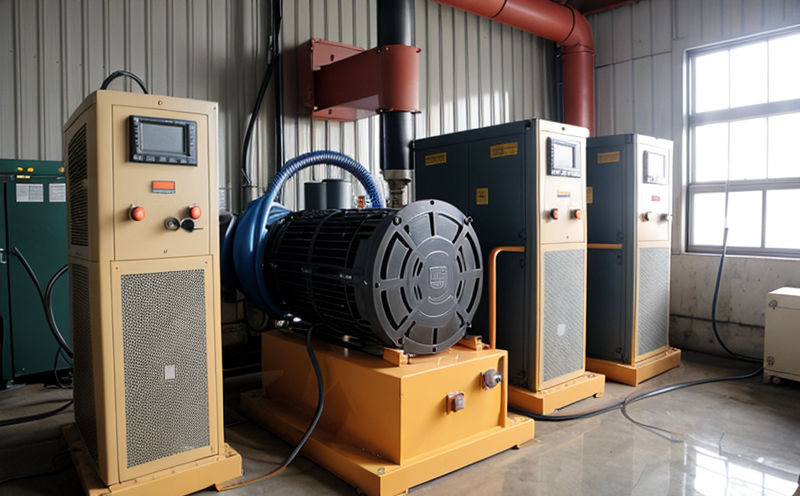ASME PTC 6 Steam Turbine Performance Testing
The ASME PTC 6 steam turbine performance testing is a critical process in ensuring that power generation equipment meets the stringent requirements set forth by the American Society of Mechanical Engineers (ASME). This service involves comprehensive evaluation and certification of steam turbines to confirm they operate within specified parameters, enhancing reliability and safety. The testing process is essential for compliance with industry standards and regulatory requirements.
The ASME PTC 6 standard provides detailed guidelines on how to conduct performance tests on steam turbines. It covers the methodology for measuring various parameters such as efficiency, power output, speed control accuracy, and more. This ensures that the equipment meets not only the manufacturer’s specifications but also industry best practices.
During this testing process, we use sophisticated instrumentation to monitor key metrics like thermal efficiency, mechanical performance, and operational stability under different load conditions. The data collected is crucial for identifying any potential issues early on, allowing for necessary adjustments before full-scale operations begin. This proactive approach helps prevent costly downtime later in the lifecycle of the equipment.
The importance of this testing cannot be overstated, especially given the critical role that steam turbines play in power generation facilities worldwide. By adhering strictly to ASME PTC 6 guidelines, we ensure consistent performance across all units, which is vital for maintaining high levels of reliability and efficiency.
Our team has extensive experience working with various types of steam turbines used in different applications, from small industrial plants to large-scale utility providers. We understand the unique challenges associated with each type and tailor our approach accordingly. Whether it’s a simple inspection or full performance testing, we provide thorough assessments that meet both customer needs and regulatory expectations.
| Standard | Description |
|---|---|
| ASME PTC 6-2017 | Performance Test Code for Steam Turbines |
| ISO 9001:2015 | Quality Management System Requirements |
Why It Matters
The performance of steam turbines directly impacts the efficiency and reliability of power generation systems. Poorly performing turbines can lead to increased fuel consumption, higher maintenance costs, and reduced electricity production. Ensuring that each turbine meets ASME PTC 6 standards is crucial for optimizing plant performance.
Compliance with these standards also helps avoid costly penalties due to non-compliance with local regulations or international agreements. Furthermore, it enhances the reputation of both the manufacturer and the facility operating the equipment, fostering trust among stakeholders.
In addition to operational efficiency improvements, adhering to ASME PTC 6 ensures safer operations by identifying potential hazards early on. This proactive approach can prevent accidents, extend asset life, and reduce environmental impact through more efficient energy conversion processes.
Given the critical nature of power generation in modern society, any disruption in service due to equipment failure could have significant consequences. By conducting regular performance tests according to ASME PTC 6 guidelines, organizations can maintain peak operational capacity while minimizing risks associated with suboptimal turbine performance.
Quality and Reliability Assurance
- Comprehensive pre-test inspections to identify any existing issues.
- Use of state-of-the-art measurement tools for accurate data collection.
- Detailed reporting including graphs, charts, and recommendations for improvement where applicable.
- Ongoing monitoring post-installation to ensure long-term reliability.





